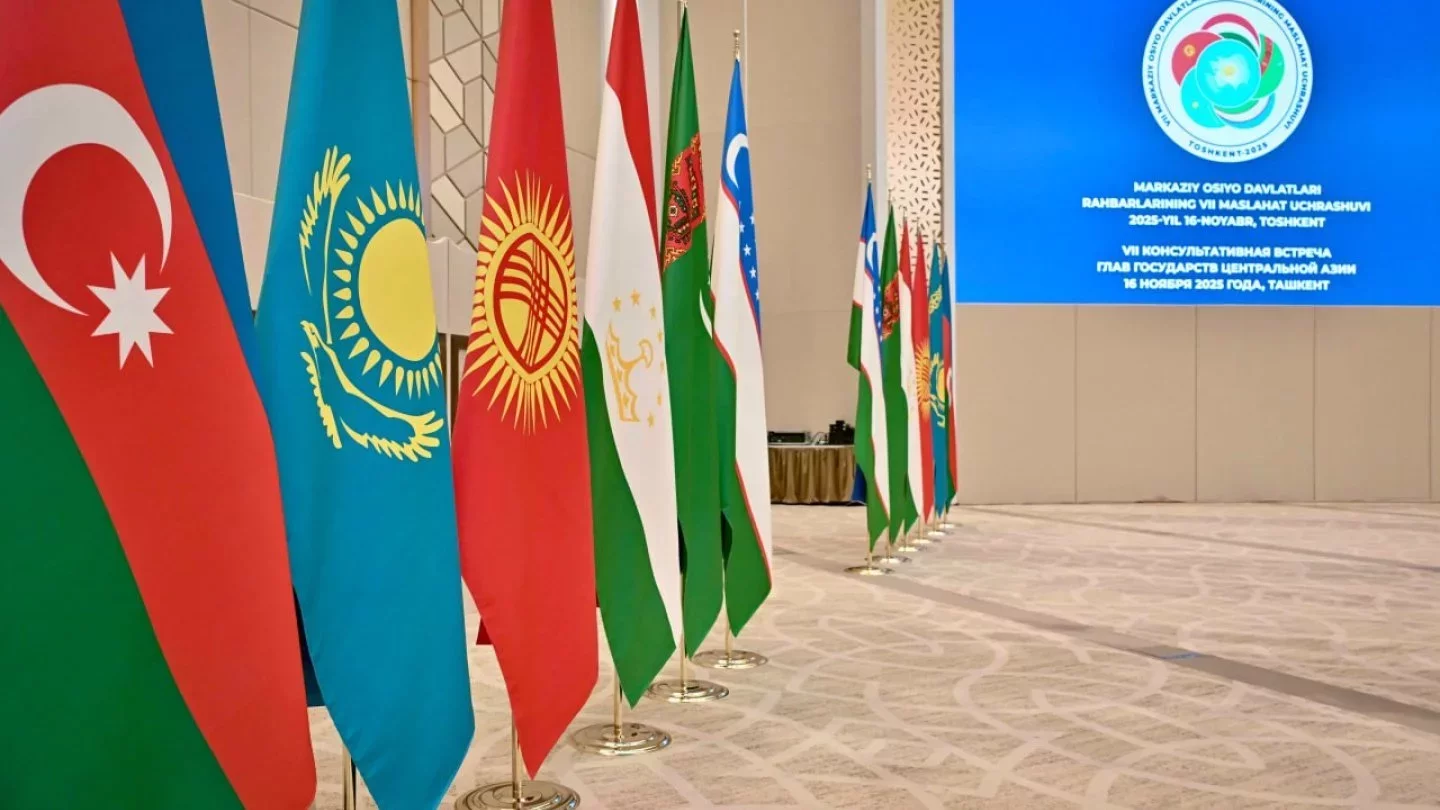Key Outcomes of The Tashkent Summit
 Photo: Aqorda
Photo: Aqorda
A summit of Central Asian heads of state took place this past weekend in Tashkent, Orda.kz reports.
The meeting was held amid increasing interest in the region from external partners and the states’ own efforts to establish clearer rules in economic cooperation, security, and regional governance. The presidents discussed issues ranging from trade and technology to extremism and transnational crime.
Azerbaijan Joins The Format
The main political outcome was Azerbaijan’s accession as a full participant in the Consultative Meeting.
The format, previously limited to Central Asian states, now includes a major partner in regional energy and transport.
President Qasym-Jomart Toqayev noted that Central Asia is entering a period of transformation, moving away from isolation and strengthening connectivity, which he described as a foundation for future economic and political initiatives.
Trade and Joint Projects
The economic discussions centered on two goals:
- Increasing mutual trade—currently $11.5 billion, with the potential to reach $20 billion
- Developing joint projects instead of separate national initiatives
Kazakhstan proposed further development of the agro-industrial sector, including advanced grain and oilseed processing, as well as building modern storage and logistics facilities.
Toqayev highlighted that large projects are already underway and stressed the importance of maintaining momentum.
Transport and Transit
Transit issues were a shared priority. To support the region’s ambition to become a major Eurasian hub, Kazakhstan proposed:
- Creating a unified electronic cargo-tracking system to reduce duplicate checks and bureaucracy
- Adopting a joint strategy for Central Asia’s transport development
The discussion also covered industrial hubs near borders and more efficient use of existing corridors.
Resources, Research, and AI
Toqayev outlined new areas for cooperation, including:
- Joint work on rare earth metals found across the region
- Creating a research center in Astana to consolidate data and technologies
He also raised the issue of artificial intelligence, calling for unified AI standards and a declaration on data exchange and transparency in digital initiatives.
Water, Security, and Cultural Cooperation
Kazakhstan proposed harmonizing water policies and reviewing a draft framework convention on water management. Security issues — extremism, drug trafficking, and other cross-border risks — were discussed at the level of national security councils.
The humanitarian agenda included joint tourism routes, a regional brand for Central Asia, and cultural projects. Kazakhstan expressed support for further developing the Center for Islamic Civilization in Tashkent.
Documents Signed
- A joint statement from the VII Consultative Meeting
- A regional security risk catalog with measures for 2026–2028
- The decision to admit Azerbaijan as a full participant
Original Author: Dinara Bekbolayeva
Latest news
- Kazakhstan Adopts First Law Regulating Artificial Intelligence
- Kazakhstan Ranked Second Worldwide in Rare Earth Metal Reserves — EnergyProm
- Yana Legkodimova: Atyrau Court Sentences Defendants in Homicide Trial to Life
- Novorossiysk Restores Oil Flows After Drone Strike
- Debate Over “LGBT Propaganda” Amendments Emerges in Kazakhstan
- Key Outcomes of The Tashkent Summit
- Kazakhstan and Uzbekistan Link Customs Systems for Automatic Data Exchange
- Incident at Shymkent Refinery: Police Detain Two Suspects
- Interview With the Israeli Ambassador: Key Issues and Perspectives
- Week In Review: Corruption Scandal Hits Ukraine
- Central Asian Ministers Discuss Made in Central Asia Brand in Tashkent
- Shymkent Judge Reprimanded After Making Inappropriate Gesture Toward Journalist
- Mother of Almas Shakhimov Refuses to Attend Trial, Calling Charges “Too Lenient”
- Toqayev and Mirziyoyev Hold Talks in Tashkent, Launch $1.2 Billion in Joint Projects
- Japarov Criticizes Officials for Overreach in Bishkek Restaurant Raids
- Rosneft and Lukoil Sanctions: U.S. Grants License for Operations at CPC, TCO, and Karachaganak
- Basmanny Court Sentences Yuri Dud in Absentia Under Foreign Agent Law
- CSTO Secretary General Tasmagambetov Added to Ukraine’s “Peacemaker” Database
- Tennis Player Rybakina Claims Guinness Record
- Novorossiysk Halts Oil Exports After Drone Strike

